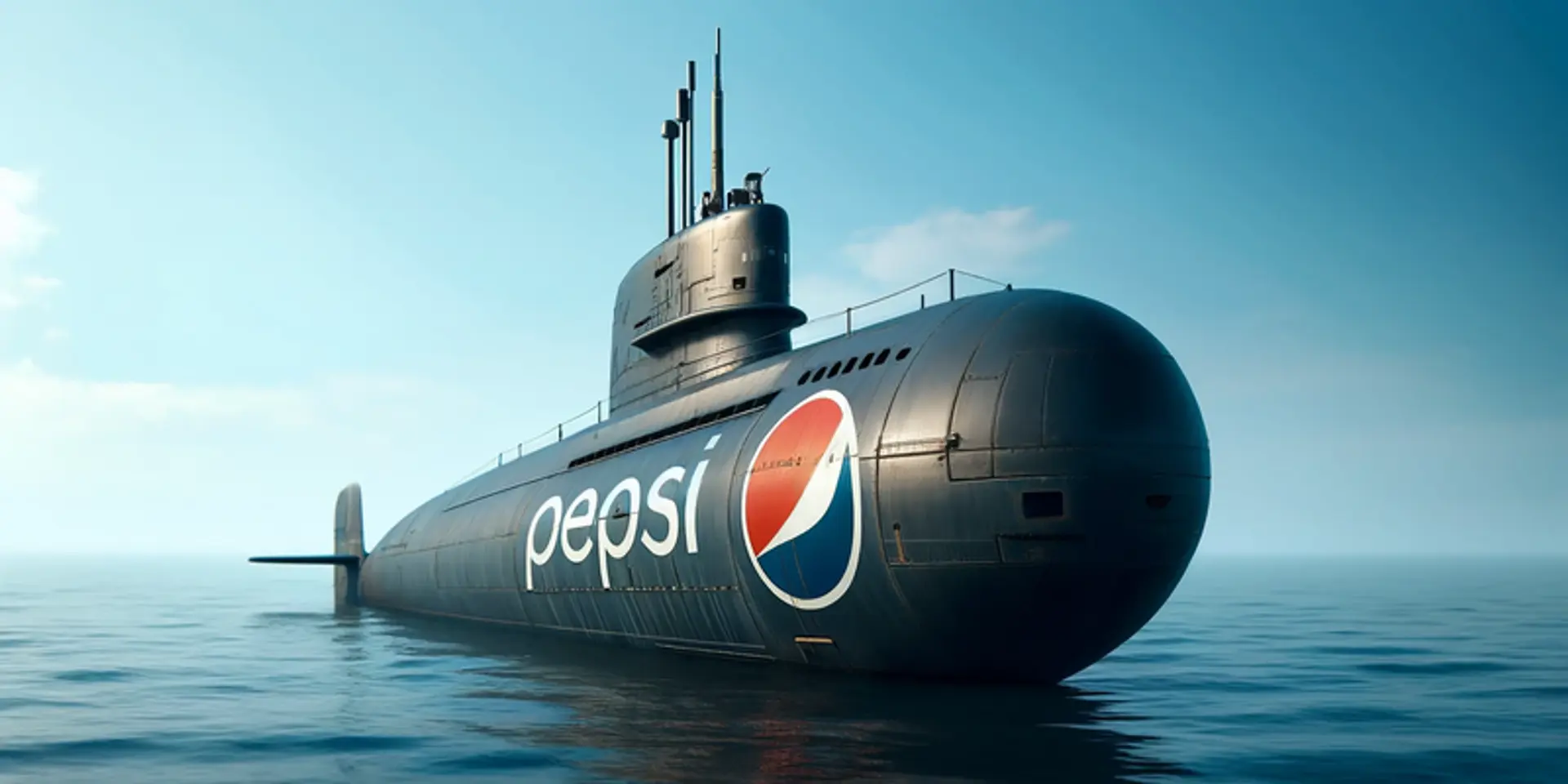Pepsi: From Cold War Cola to (Temporary) Naval Power - A Story of Unexpected Fizz-tival
In a twist that sounds more like a plot from a Cold War spy movie, Pepsi once became the 6th largest military in the world. This astonishing transformation wasn't due to a strategic pivot towards militarization but resulted from one of the most unusual trade agreements in corporate history.
Can you imagine PepsiCo, the company behind your favorite caffeinated beverage, as a major military force? Believe it or not, that's exactly what happened during the height of the Cold War in a story that's as intriguing as it is unbelievable. Buckle up, history buffs and beverage enthusiasts, because we're diving into a tale of capitalism, communism, and an epic barter deal that left Pepsi with a fleet that would make even Captain America raise an eyebrow.
The Spark in the Soviet: The Kitchen Debate

The story begins in 1959 at the American National Exhibition in Moscow, where America showcased its art, culture, and technological innovations. Amidst the futuristic displays, a heated argument known as the "Kitchen Debate" erupted between Vice President Richard Nixon and Soviet Premier Nikita Khrushchev. The debate centered on the merits of capitalism versus communism. However, it was the savvy Pepsi Vice President Donald Kendall who seized the moment, offering Khrushchev a taste of Pepsi. This gesture marked the first public sampling of an American product by a Soviet leader, setting the stage for a historic breakthrough.
Breaking Into the Iron Curtain: The 1972 Pepsi Deal
Thirteen years of negotiations followed that initial sip, culminating in 1972 when Pepsi became the first major US company to enter the Soviet market. This entry was no small feat given the complexities of Cold War-era trade and currency restrictions. The Soviet ruble's non-convertibility posed a significant obstacle, as it could not be traded internationally.
A Fizzy Solution: Barter System to the Rescue
Pepsi's solution was ingeniously straightforward. They adopted a barter system, exchanging their cola syrup for Stolichnaya Russian vodka. This arrangement allowed Pepsi not only to penetrate the Soviet market but also to turn a potential payment hiccup into a lucrative opportunity by selling vodka in the United States.
The Vodka Blockade and the Submarine Swap

However, the Soviet invasion of Afghanistan led to a U.S. boycott of Russian products, including Stolichnaya vodka. The situation demanded a creative renegotiation, and the Soviets made a jaw-dropping offer: 17 submarines, a frigate, a cruiser, and a destroyer, in exchange for keeping their beloved Pepsi flowing. This $3 billion deal briefly made Pepsi the owner of the world's 6th largest military fleet. However, committed to its corporate mission of refreshing the world, Pepsi had no interest in naval dominance. They quickly sold the fleet to a Swedish scrap merchant.
Pepsi Today: From Submarines to Sustainability
Fast forward to 2024, and PepsiCo's journey from a beverage company to a brief military power reflects its adaptability and audacity. Today, enjoyed over a billion times a day globally, PepsiCo products represent a legacy that has navigated through some of the choppiest waters of international trade and politics.
This story is not just about cola or submarines; it's about the power of understanding cultural landscapes and leveraging the unlikeliest opportunities to foster international partnerships. For businesses and strategists alike, the Pepsi narrative serves as a sparkling testament to the fluidity required to thrive in a globalized economy. Cheers to that, or as they might have said in Moscow, "На здоровье!" (To health!).
Edited by Rahul Bansal







